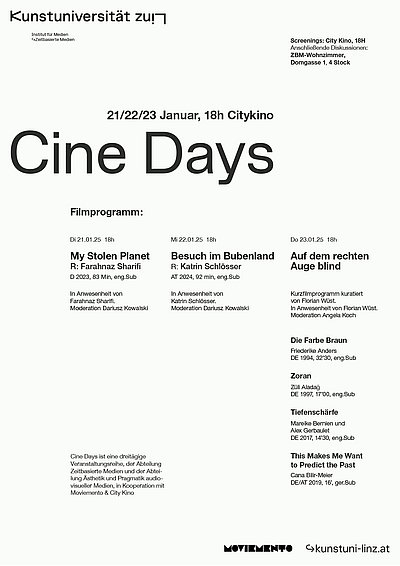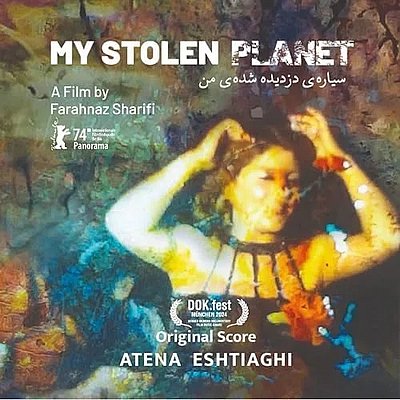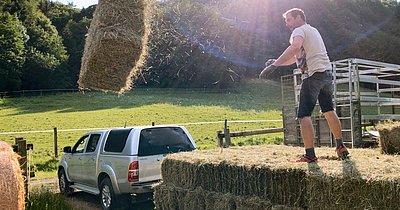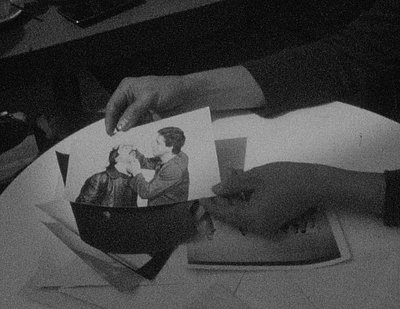Welcome at the Interface Culture program website.
Acting as creative artists and researchers, students learn how to advance the state of the art of current interface technologies and applications. Through interdisciplinary research and team work, they also develop new aspects of interface design including its cultural and social applications. The themes elaborated under the Master's programme in relation to interactive technologies include Interactive Environments, Interactive Art, Ubiquitous Computing, game design, VR and MR environments, Sound Art, Media Art, Web-Art, Software Art, HCI research and interaction design.

The Interface Culture program at the Linz University of Arts Department of Media was founded in 2004 by Christa Sommerer and Laurent Mignonneau. The program teaches students of human-machine interaction to develop innovative interfaces that harness new interface technologies at the confluence of art, research, application and design, and to investigate the cultural and social possibilities of implementing them.
The term "interface" is omnipresent nowadays. Basically, it describes an intersection or linkage between different computer systems that makes use of hardware components and software programs to enable the exchange and transmission of digital information via communications protocols.
However, an interface also describes the hook-up between human and machine, whereby the human qua user undertakes interaction as a means of operating and influencing the software and hardware components of a digital system. An interface thus enables human beings to communicate with digital technologies as well as to generate, receive and exchange data. Examples of interfaces in very widespread use are the mouse-keyboard interface and graphical user interfaces (i.e. desktop metaphors). In recent years, though, we have witnessed rapid developments in the direction of more intuitive and more seamless interface designs; the fields of research that have emerged include ubiquitous computing, intelligent environments, tangible user interfaces, auditory interfaces, VR-based and MR-based interaction, multi-modal interaction (camera-based interaction, voice-driven interaction, gesture-based interaction), robotic interfaces, natural interfaces and artistic and metaphoric interfaces.
Artists in the field of interactive art have been conducting research on human-machine interaction for a number of years now. By means of artistic, intuitive, conceptual, social and critical forms of interaction design, they have shown how digital processes can become essential elements of the artistic process.
Ars Electronica and in particular the Prix Ars Electronica's Interactive Art category launched in 1991 has had a powerful impact on this dialog and played an active role in promoting ongoing development in this field of research.
The Interface Cultures program is based upon this know-how. It is an artistic-scientific course of study to give budding media artists and media theoreticians solid training in creative and innovative interface design. Artistic design in these areas includes interactive art, netart, software art, robotic art, soundart, noiseart, games & storytelling and mobile art, as well as new hybrid fields like genetic art, bioart, spaceart and nanoart.
It is precisely this combination of technical know-how, interdisciplinary research and a creative artistic-scientific approach to a task that makes it possible to develop new, creative interfaces that engender progressive and innovative artistic-creative applications for media art, media design, media research and communication.
Cine Days #15
21. bis 23. Jänner 2025 MOVIEMENTO City-Kino, Graben 30, 4020 Linz
Die Zeitbasierten Medien laden auch heuer wieder zu den Cine Days
Cine Days ist eine dreitägige Veranstaltungs,- und Diskussionsreihe, der Abteilungen Zeitbasierte Medien und Ästhetik und Pragmatik audiovisueller Medien im Linzer Moviemento & City-Kino, in der aktuelle Filme gesehen und zusammen mit den Filmemacher*innen diskutiert werden.
Im Fokus stehen filmische Arbeiten mit dokumentarischem Ansatz, sowie politischem und sozialem Anspruch. Der Werkstattcharakter der Veranstaltung bietet den Studierenden eine Möglichkeit mit den eingeladenen Regisseurinnen und Regisseuren die Machart, aber auch die behandelten Themen des jeweiligen Films ausführlich zu diskutieren.
Programm
21. Jänner 2025, 18.00 Uhr
Regie: Farahnaz Sharifi
My Stolen Planet
DE 2023, 83 min.
In Anwesenheit von Farahnaz Sharifi.
Moderation Dariusz Kowalski.
My Stolen Planet“ is a diary-style narrative by Farah, an Iranian filmmaker. Born during the Islamic revolution in Iran in 1979, she captures moments of joy and defiance in her daily life, navigating the contrast between domestic freedom and external oppression. Simultaneously, she collects 8mm archives from people she doesn’t know. Relying on others‘ recordings, she gains a new perspective on losing memories. Her connection with Leyla, an Iranian professor who left Iran during the revolution, adds a name and story to one of her archive’s faces. Farah’s mother, suffering from Alzheimer’s, motivates her to fight against forgetting. In the fall of 2022, the Women, Life, Freedom uprising became a turning point.
22. Jänner 2025, 18.00 Uhr
Regie: Katrin Schlösser
Besuch im Bubenland
AT 2024, 92 min
In Anwesenheit von Katrin Schlösser.
Moderation Dariusz Kowalski.
In ihrem zweiten Dokumentarfilm macht sich die Filmemacherin Katrin Schlösser auf ins Südburgenland, um dort einen Film mit Männern zu drehen. Sie möchte herausfinden, wie sie denken und handeln, was sie antreibt und auch, wie sie selbst auf Männer zugeht, welche Erwartungen sie ihnen zuschreibt. In Form einer filmischen Feldforschung sammelt sie Begegnungen und Gespräche, erfährt von individuellen Lebenswegen, vom Alltag und seinen Lasten, von Träumen. Wortkarg und lakonisch teilen die Männer letztendlich freimütig ihre Gedanken und Gefühle – immer in Reaktion auf die Neugier, Offenheit und Hartnäckigkeit der Fragestellerin, die ihnen mit ihrer Handykamera gegenübersitzt und einen Dialog auf Augenhöhe sucht.
23. Jänner 2025, 18.00 Uhr
Kurzfilmprogramm kuratiert von Florian Wüst (Berlin)
Auf dem rechten Auge blind
In Anwesenheit von Florian Wüst.
Moderation Angela Koch.
Auf dem rechten Auge blind zeigt vier dokumentarisch-künstlerische Kurzfilme, die die tieferen Ebenen der Verbrechen – vom Rostocker Pogrom über die Nürnberger NSU-Morde bis zum Anschlag im Olympia-Einkaufszentrum in München vom Juli 2016 – reflektieren und der Allgegenwart intersektionaler Erfahrungen und nationaler Zuschreibungen die Möglichkeit, starre Denkmuster aufzubrechen, entgegensetzen.
Auf dem rechten Auge blind wurde ursprünglich für die Programmreihe Labor der Gegenwart: Deutschland des 39. Kurzfilm Festivals Hamburg 2023 zusammengestellt.
Kurzfilme:
„Die Farbe Braun“
Friederike Anders
DE 1994, Dauer: 32’30, english subtitles
„Zoran“
Züli Aladağ
DE 1997, Dauer: 17’00, english subtitles
„Tiefenschärfe“
Mareike Bernien und Alex Gerbaulet
DE 2017, Dauer: 14’30, english subtitles
„This Makes Me Want to Predict the Past“
Cana Bilir-Meier
DE/AT 2019, Dauer: 16’, german subtitles
Programminfos: zeitbasiertemedien/2025/cine-days-15-programm



